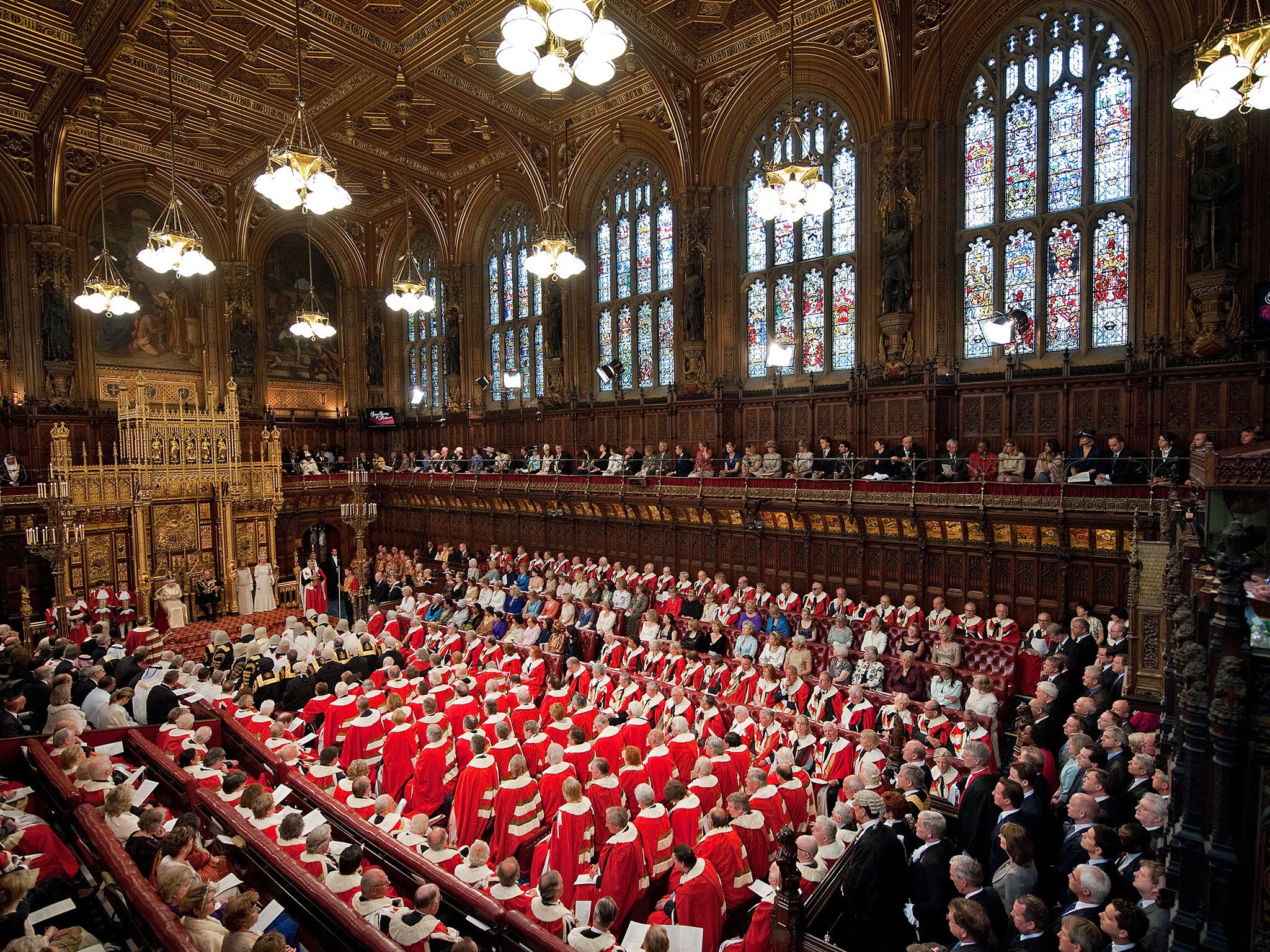The Independent's journalism is supported by our readers. When you purchase through links on our site, we may earn commission.
Peerages: from birthright to bauble is not progress
‘There are many chances for old buffers to make speeches outside the House of Lords’


Here is a quiz question. Who was the last person to be prime minister while a member of the House of Lords? I have been reading the collection of essays called British Conservative Leaders, edited by Charles Clarke and others, which traces the descent of the Tory leadership from the Lords to the Commons. Lords Derby, Beaconsfield and Salisbury are well known. The second is better known as Benjamin Disraeli, although he was the Earl of Beaconsfield for the last four of his seven years as Prime Minister. But Lord Home, better known as Alec Douglas-Home, didn’t renounce his peerage until four days after he became Prime Minister in 1963. He was then a member of neither House of Parliament for two weeks until he was returned to the Commons in a by-election in Kinross and Western Perthshire.
The significance of this curiosity is that it marks just how slowly the constitution changes. The Lords lost most of its power to block the will of the Commons in 1911. Its power to delay non-money measures was cut in 1949; life peerages were brought in in 1958; and it wasn’t until 1997 that most of the hereditary peers were kicked out. On this last, my argument has long been that Tony Blair’s achievement was greater than he is usually given credit for. History has shown, and David Cameron discovered when his party revolted in 2012, how hard it is actually to deliver Lords reform. For Blair to have got rid of most of the hereditary element, with the consent of the mostly Tory hereditaries themselves, required unnatural skill.
Of course, the trouble is that a mostly appointed Upper House may be better than one selected by birth, but it is still indefensible. One argument might be that the ennobling of a Labour politician who, only nine months earlier, said “the Lords are an archaic anomaly which fuels disillusionment with British politics” adds to the gaiety of the nation. But Peter Hain – yes, it was he – is not the first opponent of an appointed House of Lords to enter the citadel and try to undermine it from within.
Another argument might be that it could provide a counter-weight to the supposed distortions of the first-past-the-post Commons voting system. But 11 new peers for the Liberal Democrats, taking their share of the Upper House to 14 per cent, nearly twice their share of the vote in the general election? And none for Ukip or the Green Party, which won 13 per cent and 4 per cent of the vote respectively? (No seats for the Scottish National Party is different: it refuses to take seats in the Lords.)
A third argument might be that the House of Lords provides a national bank of wisdom and experience. In which case, it is a mere coincidence that Douglas Hogg, who repaid £2,200 of his expenses, was the first minister that George Osborne served under, as a special adviser.
You can see why Cameron and Nick Clegg agreed a plan for a mostly elected upper house. But I can also see the force of the best argument against it, deployed by Jesse Norman and his Tory rebels: that direct elections would create a rival source of democratic authority to the Commons.
There is no satisfactory reform of the House of Lords, it seems to me. It serves no good purpose except as an occasional good-quality and more thoughtful version of BBC Question Time. If old buffers, otherwise known as “the great and the good”, want to make interesting speeches or take part in dignified debates, there are plenty of chances to do that outside the House of Lords.
As for scrutinising and revising draft laws, the Lords is dispensable. A better-supported House of Commons could do the job just as well. By all means, retain the House of Lords in a ceremonial role, for the Queen’s Speech. It could even stage debates on large subjects. Then nobody would care much who was and wasn’t a member and it might be a staging post towards abolishing all honours and titles. Thus I have ended up in the same position as Michael Foot: who blocked Lords reform in the 1960s arguing for one democratically elected House, the House of Commons, deriving its authority from a sovereign people. Not many people remember this, but Labour’s “longest suicide note”, the 1983 manifesto, promised “an early Bill to abolish the legislative powers of the House of Lords”. So, Jeremy Corbyn and I agree on one thing.
Not that it matters what either of us thinks. The House of Lords is unlikely ever to be abolished, because it provides some of the essential currency of politics: a spoils system of relatively harmless baubles greatly conducive to effective party management.
Cameron and his likely successor, Osborne, have used it to reward the loyalty of their client tribe. Foot said “a second chamber selected by the Whips” would be “a seraglio of eunuchs”. Which is what it now is, even if most of us have to look up “seraglio”, a harem in an Ottoman palace.
Twitter: @JohnRentoul
Join our commenting forum
Join thought-provoking conversations, follow other Independent readers and see their replies
Comments
Bookmark popover
Removed from bookmarks